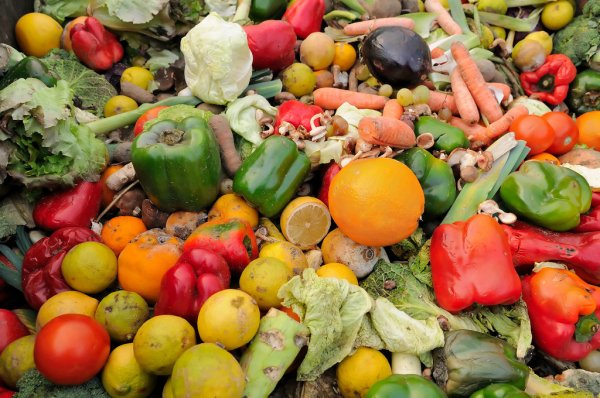October 12, 2021
By Lynda Kiernan, Global AgInvesting Media
Nuveen has made a $169 million foundational investment behind the launch of Do Good Foods – a game-changing, first-of-its-kind scalable solution to eliminate 48 billion pounds of food waste generated by grocery stores each year.
Created by the Kamine Family, founders of the Kamine Development Corporation, a pioneer that has built $3.5 billion in large-scale infrastructure projects across the U.S. over the past 40 years, Do Good Foods is a closed-loop system that collects excess foods such as meats, fruit, and vegetables, from grocery stores using reusable coolers, and upcycles them into a nutrient-dense animal feed for the production of sustainable animal proteins.
“Food waste is an economic, environmental, and social disaster,” said Shannon Bergstrom, Recycle Track Systems, in her article Food Waste: How the Agriculture Industry Can Help, published in GAI News in October 2020. “In the United States alone, nearly 40 million tons of food is thrown out every year, which equates to around 40 percent of all produce in the U.S. food supply.”
This newly launched company has built its first facility in Fairless Hills, Pennsylvania, which has the capacity to process 160 tons of excess or wasted food from 450 grocery stores per day, or 60,000 tons per year. Over the next five years, Do Good Foods plans to replicate this business model across the U.S.
“We need actionable solutions to our massive environmental problems, and we need them now,” said Matt Kamine, co-CEO, Do Good Foods. “We can’t afford to wait 10 years or 20 years. The beauty of Do Good Foods is that it has immediate economic and environmental impact by driving us toward a more sustainable food system for all.”
Prior to COVID-19 becoming our new reality, food waste was already a serious issue. At a time when 1 in 7 Americans is food insecure, not only is tens of millions of tons of food ending up in landfills, but another 10 million tons of food is left in fields discarded or unharvested each year.
Food waste accounts for 18 percent of cropland, 19 percent of all fertilizer, and 21 percent of freshwater, as well as 21 percent by volume in landfills, according to ReFED, a multi-stakeholder, non-profit comprised of influential leading business, foundation, non-profit, and government leaders committed to reducing food waste.
“There is a severe environmental cost to this waste with, [as previously stated], massive amounts of resources such as water, as well as energy, being used on wasted food,” noted Bergstrom.” It is estimated that 7 percent of the world’s emissions that drive global warming, such as methane and carbon dioxide, are created in this way. There are also significant amounts of greenhouse gases produced by the actual discarded food…”
The feed produced from this excess food will be used to produce Do Good Foods’ first product – Do Good Chicken – a sustainable, carbon-reduced chicken raised in a cage-free environment and without antibiotics that will be available in supermarkets, restaurants, and food service locations beginning in 2022.
Each package of Do Good Chicken sold will keep one pound of food waste out of a landfill. And considering that each American eats an average of 98 pounds of chicken per year, there is potential here for significant impact. Indeed, the company already has plans to expand beyond chicken, but details of this strategy have not yet been released.
Do Good Foods’ novel circular infrastructure platform has attracted some of the most prominent thought leaders in the U.S. dedicated to reducing food waste, including former U.S. Secretary of Agriculture Ann Veneman, and Sam Kass, a former chef and policy advisor for President Obama who has assumed the role of chief strategy officer for the company.
“As a chef who has also had a seat at the policy table, I’ve worked with governments, NGOs, corporations and academics to solve food waste,” said Kass. “Do Good Foods will make an impact on this issue at a scale that we have not yet seen. When we launch our mission-driven consumer food brand, people can simply eat some delicious chicken and have significant impact on food waste and climate change.”
– Lynda Kiernan-Stone is editor with GAI Media, and is managing editor and daily contributor for Global AgInvesting’s AgInvesting Weekly News and Agtech Intel News, as well as HighQuest Group’s Oilseed & Grain News. She can be reached at lkiernan-stone@

Let GAI News inform your engagement in the agriculture sector.
GAI News provides crucial and timely news and insight to help you stay ahead of critical agricultural trends through free delivery of two weekly newsletters, Ag Investing Weekly and AgTech Intel.




